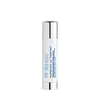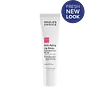What's inside
What's inside
 Key Ingredients
Key Ingredients

 Benefits
Benefits

 Concerns
Concerns

 Ingredients Side-by-side
Ingredients Side-by-side

Hydrogenated Soybean Oil
EmollientOctyldodecanol
EmollientHydrogenated Olive Oil
Skin ConditioningMicrocrystalline Wax
Emulsion StabilisingBis-Diglyceryl Polyacyladipate-2
EmollientHydrogenated Jojoba Oil
AbrasiveButyrospermum Parkii Butter
Skin ConditioningOctyldodecyl Stearoyl Stearate
EmollientPolyethylene
AbrasiveGlycine Soja Lipids
Skin ConditioningC12-15 Alkyl Benzoate
AntimicrobialSorbitan Sesquioleate
EmulsifyingCocos Nucifera Oil
MaskingPalmitoyl Hexapeptide-12
Skin ConditioningPanthenol
Skin ConditioningAloe Barbadensis Leaf Extract
EmollientCentella Asiatica Extract
CleansingTocopherol
AntioxidantTocopheryl Acetate
AntioxidantSodium Hyaluronate
HumectantTamarindus Indica Seed Gum
Emulsion StabilisingGlycolic Acid
BufferingCalendula Officinalis Extract
Skin ConditioningMentha Piperita Oil
MaskingHelianthus Annuus Seed Oil
EmollientGlycyrrhiza Glabra Root Extract
BleachingCarica Papaya Fruit Extract
Skin ConditioningSambucus Nigra Fruit Extract
AstringentMorus Alba Leaf Extract
Skin ConditioningWater
Skin ConditioningTribehenin
EmollientCeramide Ng
Skin ConditioningPhytosterols
Skin ConditioningPEG-10 Phytosterol
EmulsifyingTetrahexyldecyl Ascorbate
AntioxidantGlycerin
HumectantPentylene Glycol
Skin ConditioningHydrogenated Soybean Oil, Octyldodecanol, Hydrogenated Olive Oil, Microcrystalline Wax, Bis-Diglyceryl Polyacyladipate-2, Hydrogenated Jojoba Oil, Butyrospermum Parkii Butter, Octyldodecyl Stearoyl Stearate, Polyethylene, Glycine Soja Lipids, C12-15 Alkyl Benzoate, Sorbitan Sesquioleate, Cocos Nucifera Oil, Palmitoyl Hexapeptide-12, Panthenol, Aloe Barbadensis Leaf Extract, Centella Asiatica Extract, Tocopherol, Tocopheryl Acetate, Sodium Hyaluronate, Tamarindus Indica Seed Gum, Glycolic Acid, Calendula Officinalis Extract, Mentha Piperita Oil, Helianthus Annuus Seed Oil, Glycyrrhiza Glabra Root Extract, Carica Papaya Fruit Extract, Sambucus Nigra Fruit Extract, Morus Alba Leaf Extract, Water, Tribehenin, Ceramide Ng, Phytosterols, PEG-10 Phytosterol, Tetrahexyldecyl Ascorbate, Glycerin, Pentylene Glycol
Homosalate 5%
Skin ConditioningEthylhexyl Salicylate 5%
UV AbsorberButyl Methoxydibenzoylmethane 3%
UV AbsorberOctocrylene 2.5%
UV AbsorberPolybutene
Octyldodecanol
EmollientEthylhexyl Palmitate
EmollientCera Microcristallina
Emulsion StabilisingPolyethylene
AbrasivePolyglyceryl-2 Tetraisostearate
EmollientCocos Nucifera Oil
MaskingAroma
Silica Silylate
EmollientAdenosine
Skin ConditioningRetinyl Palmitate
Skin ConditioningLecithin
EmollientTocopherol
AntioxidantTocopheryl Acetate
AntioxidantIsononyl Isononanoate
EmollientIsopropyl Titanium Triisostearate
EmollientStearalkonium Hectorite
Gel FormingIsopropyl Myristate
EmollientPropylene Carbonate
SolventPolyhydroxystearic Acid
EmulsifyingSilica
AbrasiveCI 15850
Cosmetic ColorantIron Oxides
Titanium Dioxide
Cosmetic ColorantTin Oxide
AbrasiveMica
Cosmetic ColorantPhenoxyethanol
PreservativeCI 77742
Cosmetic ColorantBlue 1 Lake
Cosmetic ColorantCI 15985
Cosmetic ColorantCI 19140
Cosmetic ColorantCI 45380
Cosmetic ColorantCI 73360
Cosmetic ColorantCI 12085
Cosmetic ColorantCI 16035
Cosmetic ColorantHomosalate 5%, Ethylhexyl Salicylate 5%, Butyl Methoxydibenzoylmethane 3%, Octocrylene 2.5%, Polybutene, Octyldodecanol, Ethylhexyl Palmitate, Cera Microcristallina, Polyethylene, Polyglyceryl-2 Tetraisostearate, Cocos Nucifera Oil, Aroma, Silica Silylate, Adenosine, Retinyl Palmitate, Lecithin, Tocopherol, Tocopheryl Acetate, Isononyl Isononanoate, Isopropyl Titanium Triisostearate, Stearalkonium Hectorite, Isopropyl Myristate, Propylene Carbonate, Polyhydroxystearic Acid, Silica, CI 15850, Iron Oxides, Titanium Dioxide, Tin Oxide, Mica, Phenoxyethanol, CI 77742, Blue 1 Lake, CI 15985, CI 19140, CI 45380, CI 73360, CI 12085, CI 16035
Alternatives
Ingredients Explained
These ingredients are found in both products.
Ingredients higher up in an ingredient list are typically present in a larger amount.
Cocos Nucifera Oil is obtained from the kernels of the coconut fruit. In other words, this is coconut oil.
Coconut Oil is rich in fatty acids with lauric acid making up the majority of these. It also contains linoleic acid. Due to this high fatty acid content, coconut oil helps trap moisture and soften skin.
Despite being antibacterial, coconut oil may not be great for acne-prone skin. It is comedogenic and may clog pores. This ingredient may not be safe for malassezia or fungal acne.
Note: Coconut Oil should not replace your sunscreen for UV protection. Studies show it only blocks about 20% of UV.
This oil is non-volatile and has a light scent.
The term 'fragrance' is not regulated in many countries. In many cases, it is up to the brand to define this term. For instance, many brands choose to label themselves as "fragrance-free" because they are not using synthetic fragrances. However, their products may still contain ingredients such as essential oils that are considered a fragrance.
Learn more about Cocos Nucifera OilOctyldodecanol is a fatty alcohol. It is primarily used to enhance the texture of products.
As an emulsifier, Octyldodecanol helps prevent the oils and waters from separating. It also prevents ingredients from creating foam when shaken.
Octyldodecanol is created by reducing fatty acid to an alcohol.
Due to its high molecular weight, it does not get absorbed into the skin.
Learn more about OctyldodecanolPolyethylene is a synthetic ingredient that helps the skin retain moisture. It is a polymer.
It is also typically used within product formulations to help bind solid ingredients together and thicken oil-based ingredients. When added to balms and emulsions, it helps increase the melting point temperature.
Tocopherol (also known as Vitamin E) is a common antioxidant used to help protect the skin from free-radicals and strengthen the skin barrier. It's also fat soluble - this means our skin is great at absorbing it.
Vitamin E also helps keep your natural skin lipids healthy. Your lipid skin barrier naturally consists of lipids, ceramides, and fatty acids. Vitamin E offers extra protection for your skin’s lipid barrier, keeping your skin healthy and nourished.
Another benefit is a bit of UV protection. Vitamin E helps reduce the damage caused by UVB rays. (It should not replace your sunscreen). Combining it with Vitamin C can decrease sunburned cells and hyperpigmentation after UV exposure.
You might have noticed Vitamin E + C often paired together. This is because it is great at stabilizing Vitamin C. Using the two together helps increase the effectiveness of both ingredients.
There are often claims that Vitamin E can reduce/prevent scarring, but these claims haven't been confirmed by scientific research.
Learn more about TocopherolTocopheryl Acetate is AKA Vitamin E. It is an antioxidant and protects your skin from free radicals. Free radicals damage the skin by breaking down collagen.
One study found using Tocopheryl Acetate with Vitamin C decreased the number of sunburned cells.
Tocopheryl Acetate is commonly found in both skincare and dietary supplements.
Learn more about Tocopheryl Acetate